The post From fear to freedom: 12 years confined in an orphanage in Nepal appeared first on Hope and Homes for Children.
]]>“If one of us made a mistake, all of us would get beaten – with pipes, sticks and bamboo strips. In my heart, all I felt was fear.”
These are the words of Moti, a young man who spent the majority of his childhood confined inside an orphanage. “They took me at such a young age,” Moti, now 20, says, sitting outside his family home in Nepal. “I stayed there for 12 years. I didn’t even know I had a family.”
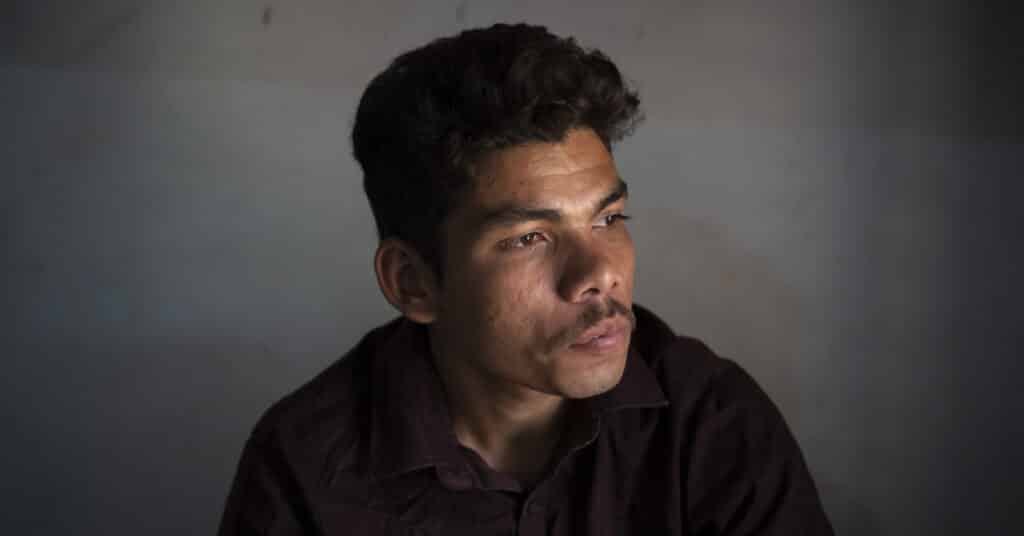
Moti’s dad died young, leaving his mum, Kumari*, scrambling to raise her six children alone. Grieving her husband and unable to pay for Moti’s school fees, a local priest advised her to send him to an orphanage. Believing it was her only chance to get an education for her youngest child, Kumari agreed. Moti was only four.
“I felt bad living there,” Moti explains. “The orphanage was meant to educate, but that’s not what it did. I suffered.” Instead of receiving the care his mum was promised, Moti was exposed to violence, abuse and neglect for twelve long years. Now, he’s sharing his story to shed light on the realities of orphanages, and the importance of family for every child around the world.
Behind closed doors
“We were beaten all the time,” Moti remembers. “They didn’t feed us well either. We still felt hungry after every meal.” Moti grew up alongside 300 other children. He received little care, love, or freedom. Even sleeping was controlled.
“I slept in a dorm with 30 other children,” he explains. “Three rows of ten, like sardines, forced to sleep completely straight. The slightest movement and we were beaten. Was that them trying to educate us? We couldn’t even sleep how we wanted to.”
Right now, over 10,000 children are growing up in orphanages in Nepal. Like Moti, 85% of them have living families, but were sent to an orphanage under the promise of receiving an education. In many cases, that promise was a lie.
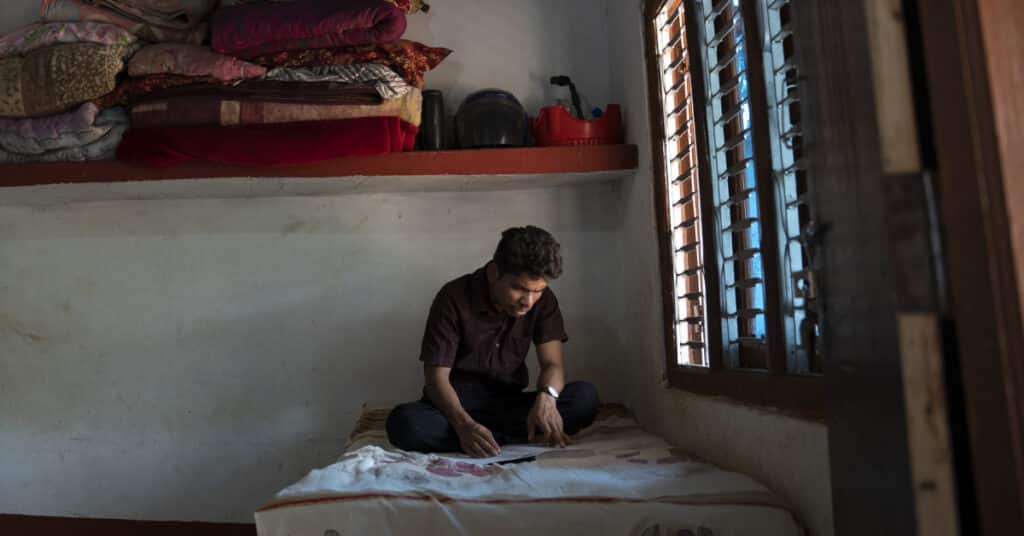
“We had to wake up at 4 a.m. for prayers and chores, every day. The orphanage was Christian, so Hindu children were forced to convert,” he remembers.
“We never got to go outside. We felt like the world was only as big as the orphanage.”
Moti’s mum, Kumari, just wanted the best for her son. What she didn’t know was that orphanages don’t help children. They harm them. Behind closed doors, children like Moti suffer.
Reuniting Moti with his family
In 2018, our local partners The Himalayan Innovative Society (THIS) and Forget Me Not (FMN) started working inside Moti’s orphanage.
In partnership with the Nepali government, they began the long process of closing the orphanage by reuniting the children inside with their families. Sajit Sapkota, a Reintegration Officer with THIS, began by tracing Moti’s family, counselling his mum, Kumari, and ensuring she had everything she needed to bring Moti home. Once she was ready, Sajit began preparing Moti.
“There was talk of everyone in the orphanage finally being allowed to go home,” Moti remembers. “They asked me if I wanted to leave. Delighted, I said yes.”
With help from Sajit, Moti was soon ready. After twelve long years, he left the orphanage and went home to his mum.
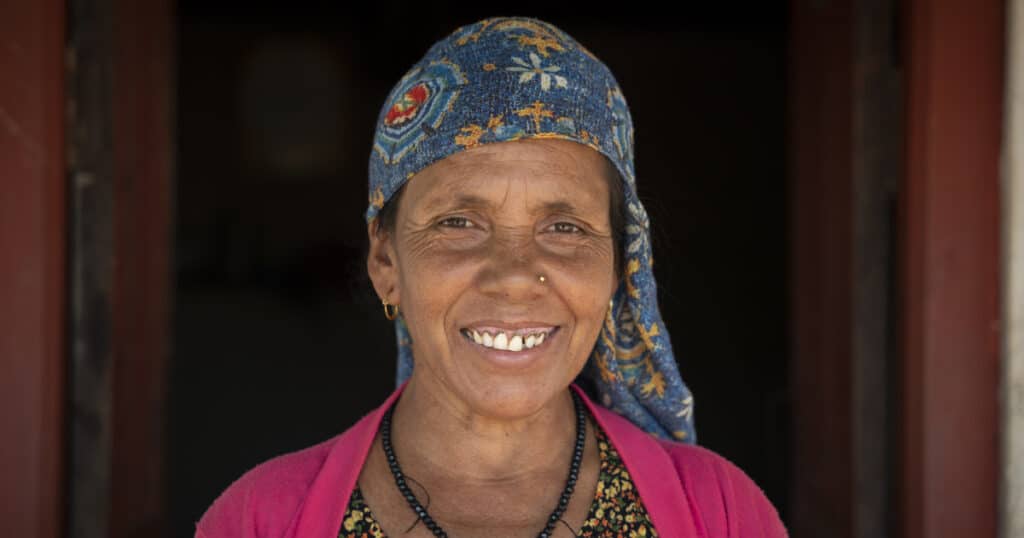
The world outside the orphanage
Four years later, Moti has settled in to life back at home. But after twelve years effectively confined to a prison, adjusting to life outside the orphanage was still very challenging for him, which is why our team’s ongoing support is so crucial.
“When I left the orphanage for the first time, I felt very strange. I couldn’t make sense of where I was or the world around me. So, I kept silent. Sometimes, I thought about dropping out of school.”
But Sajit stuck by Moti’s side every step of the way. He visited regularly, offering counselling and financial support to pay for school fees, books and one-to-one tuition to help him finish school and pass his final exams.
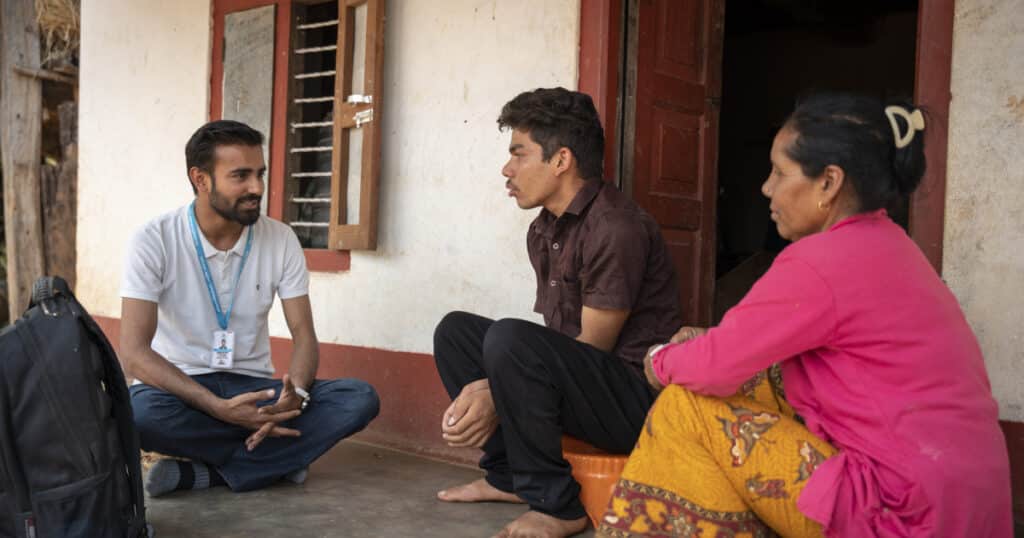
“Sajit encouraged me to study and move ahead in life,” says Moti. “He goes to the shops with me, gets the tailor to take my measurements, and gets me school supplies to last the year. He’s helped me in ways a family usually supports a person.”
“Gradually, after a year passed, I started talking to my family, friends and teachers and got along well with them. Now, if I see a new person, I want to talk to them and be their friend. And if any of my friends are struggling, I help them.”
Now, Moti’s dream is to finish school, learn to drive, and move abroad. He’s settling in, adapting to life at home, and learning to love his new-found freedom.
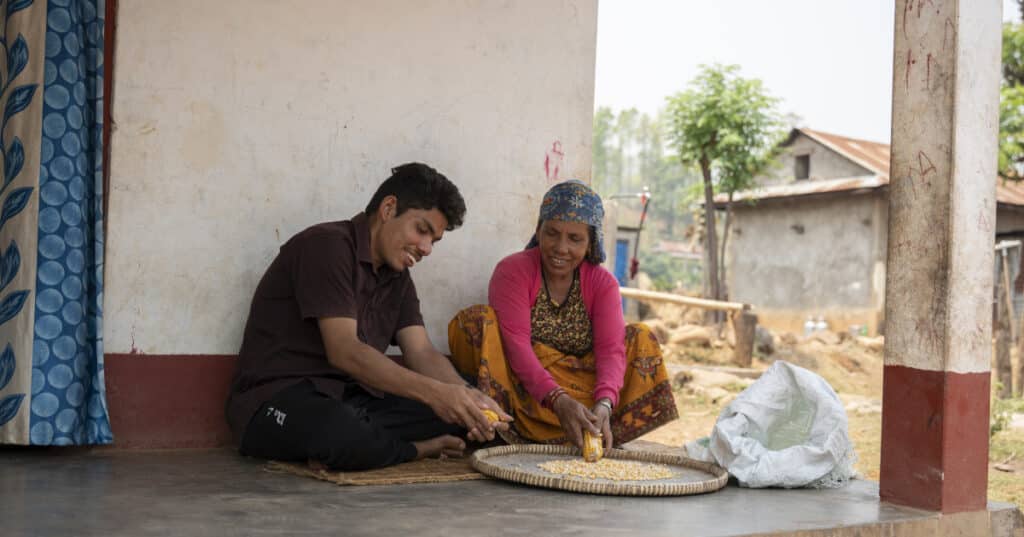
“To me, family means to live together, to love each other, to share our sorrows, and to belong,” he says.
“Because we got beaten a lot in the orphanage, I had a lot of fear. Thanks to the love I’ve received from everyone here at home, my fear has gradually gone away.”
“Here, with my own bed, I am free. I can move and sleep on my own free will. And nobody can say anything about it.”
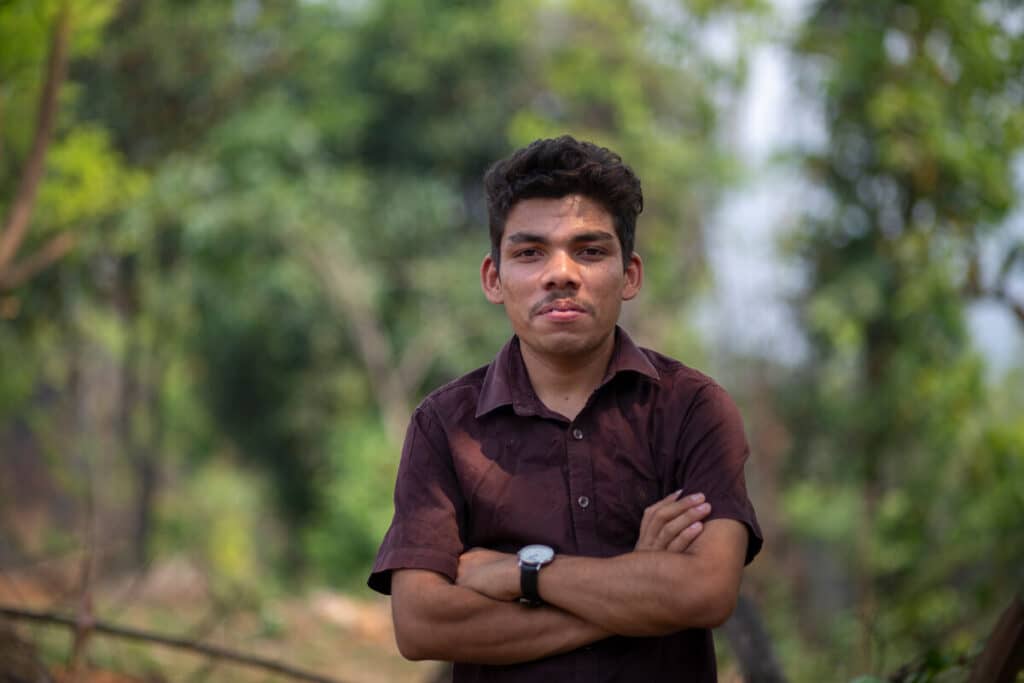
Moti is just one of hundreds of children in Nepal who we’ve helped reunite with their families. But there are still 10,000 more. We urgently need your help bringing them home. To prevent other children from suffering the agonising hardship Moti endured for twelve years, please donate what you can today, and help keep children #SafeFromHarm and free from fear. Thank you.
The post From fear to freedom: 12 years confined in an orphanage in Nepal appeared first on Hope and Homes for Children.
]]>The post Donate to our Christmas Appeal to keep children #SafeFromHarm appeared first on Hope and Homes for Children.
]]>Even worse, 85% of these children aren’t actually orphans. Instead of growing up at home, safe and loved, children are trapped inside orphanages – homesick, lonely and afraid.
This Christmas, we urgently need your support to help reunite children in orphanages with their families. Watch our video and read on below to find out how you can help keep children safe from harm.
How many children are in orphanages in Nepal?
Right now, over 10,000 children are shut away in 400 orphanages across Nepal. Cut off from their family, community, and culture. Most of these children have at least one living parent who they could – and should – be growing up with. But poverty, limited access to education and widespread misconceptions about orphanages cause families to be torn apart.
What happens to children in orphanages?
Tragically, many children in Nepal’s orphanages often experience hunger and beatings, as you’ll hear from Tabita* and Moti* in the film. Many live in constant fear of being scolded and punished. And often they don’t even know that they have living parents.
When Moti shared his story with me earlier this year, it broke my heart. “I was only four when they took me away,” he explained. “I stayed there for 12 years. I didn’t even know I had parents. We got beaten a lot – with pipes, sticks, bamboo strips. In my heart, all I felt was fear.”
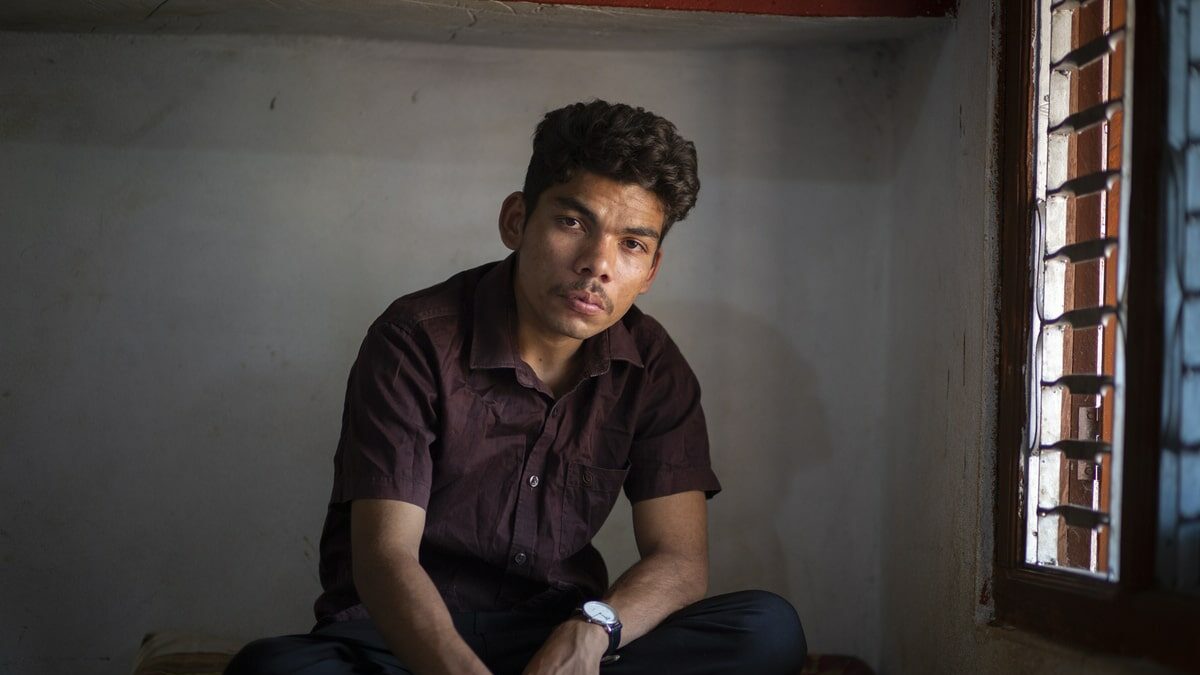
Unaware of these children’s heartbreaking experiences, 70% of people in the UK think orphanages are a good thing. But sadly, they’re mistaken. Even the most well-run orphanages don’t help children; they harm them by denying them their fundamental human right to love, family and belonging.
So why are children left in orphanages?
There are many reasons why children end up in orphanages but three main reasons in Nepal are:
- Poverty. Global inequality exacerbated by skyrocketing global prices means many parents can’t afford basics like food and school supplies. This makes them vulnerable to widespread misconceptions that orphanages can offer their child a better future, by guaranteeing food, shelter and education.
- Lack of access to education. Many parents want to send their children to school to give them the best chance in life. But in poor remote areas where the closest school is still a long walk away and parents can’t afford school fees and books, sending children to orphanages is seen as a good alternative.
- Trafficking. Many orphanages in Nepal operate as businesses with the purpose of making money. Children are often trafficked from poor remote areas into these orphanages – or so-called ‘child care homes’ – to elicit donations from well-meaning but misinformed tourists or donors.
Dambari Maya, below, is one of thousands of parents who’ve been persuaded to give up their precious children.
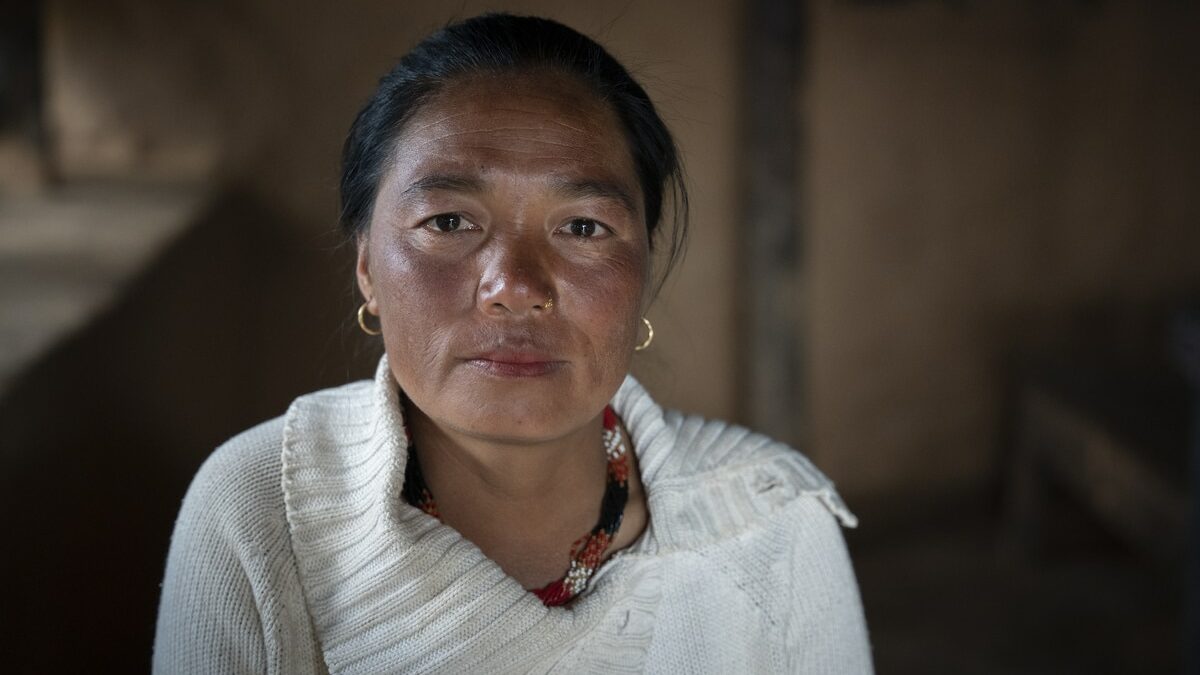
“We didn’t have enough to eat,” she explained to me. “The men who took my children told me they’d educate them and feed them well. I trusted them. But I suffered, and my children suffered too. I didn’t understand then. But now I do. And things have to change.”
With your support, we can make that change happen and reunite children with their families. Children like Sunil.
How we reunited Sunil with his family
Sunil, six, is from the Chepang community – one of the most marginalised indigenous groups in Nepal. Determined to get Sunil the education she never had, his mum, Lata* was persuaded to send him to an orphanage.
“I didn’t want to send him,” Lata said, keen to explain the terrible decision she felt compelled to make. “My heart ached thinking about him. But I would tell myself that taking him back would ruin his future.” Sadly, Sunil suffered for two long years, desperately missing his mother.
When Lata visited him, Sunil would say: “Mummy, I don’t want to go back to the orphanage. I don’t like that place. There are older children there that beat me. Please let me come home.”
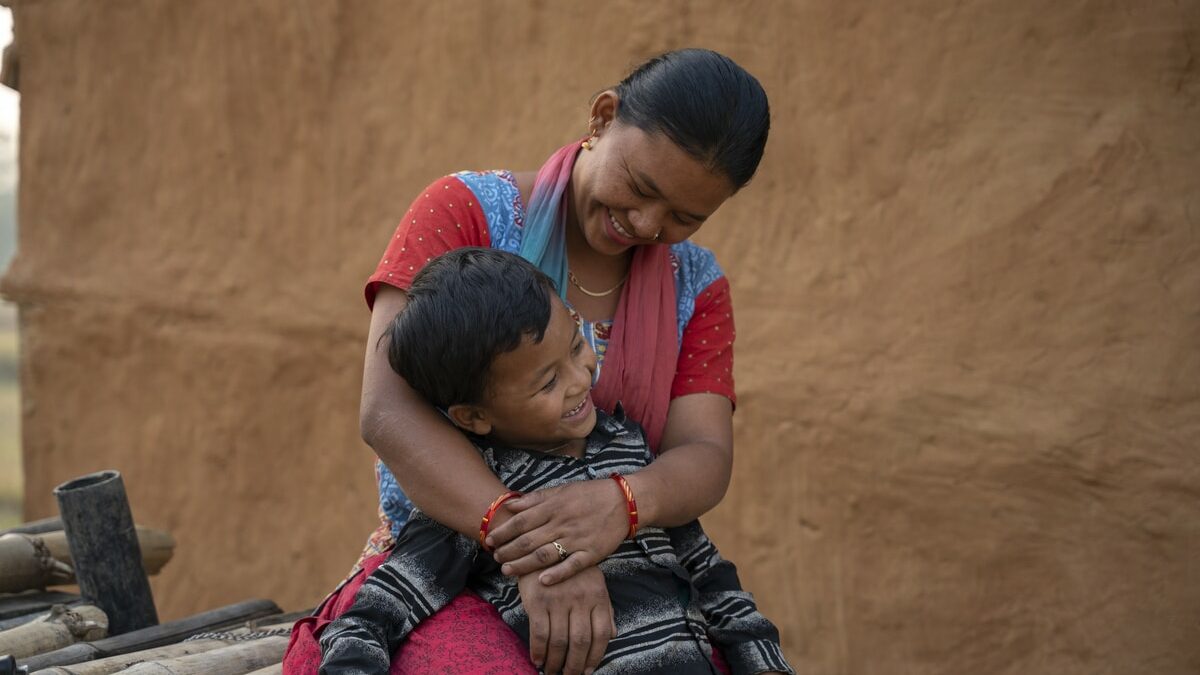
Last year, my colleague Rohan traced Sunil’s parents, counselled them and offered the financial support they needed to bring him back. “Things used to be hard,” Lata told me, “but thanks to the support we’ve received, life is much easier. I am so happy. Now Sunil can sit in my lap and be loved.”
How can I help children in orphanages this Christmas?
Sunil’s just one of 26 Chepang children we’ve reunited with their families from two orphanages in Chitwan District. But there are still 37 children left living there. This Christmas, you can help us keep them safe from harm.
We’ve already traced their parents. But just like Sunil’s parents, with limited opportunities to earn an income, Chepang families need support to put food on the table and afford education.
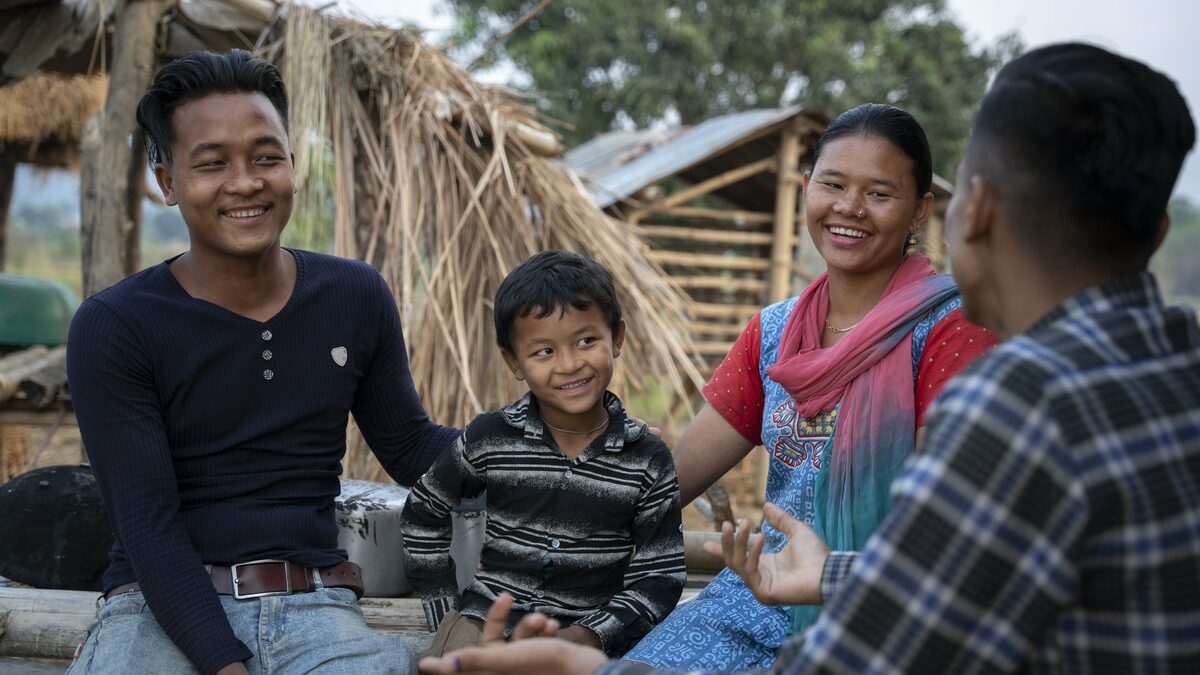
How will my donation help children in orphanages?
Your donation could help parents cover education costs, from books and uniform to school fees and a bike to get to class. For parents like Lata, these basic items could be what enables them to bring their families back together.
Your donation could also help my team prevent more children being sent away, by telling more parents the truth about orphanages, and lobbying for better schools in remote areas so children can study near home.
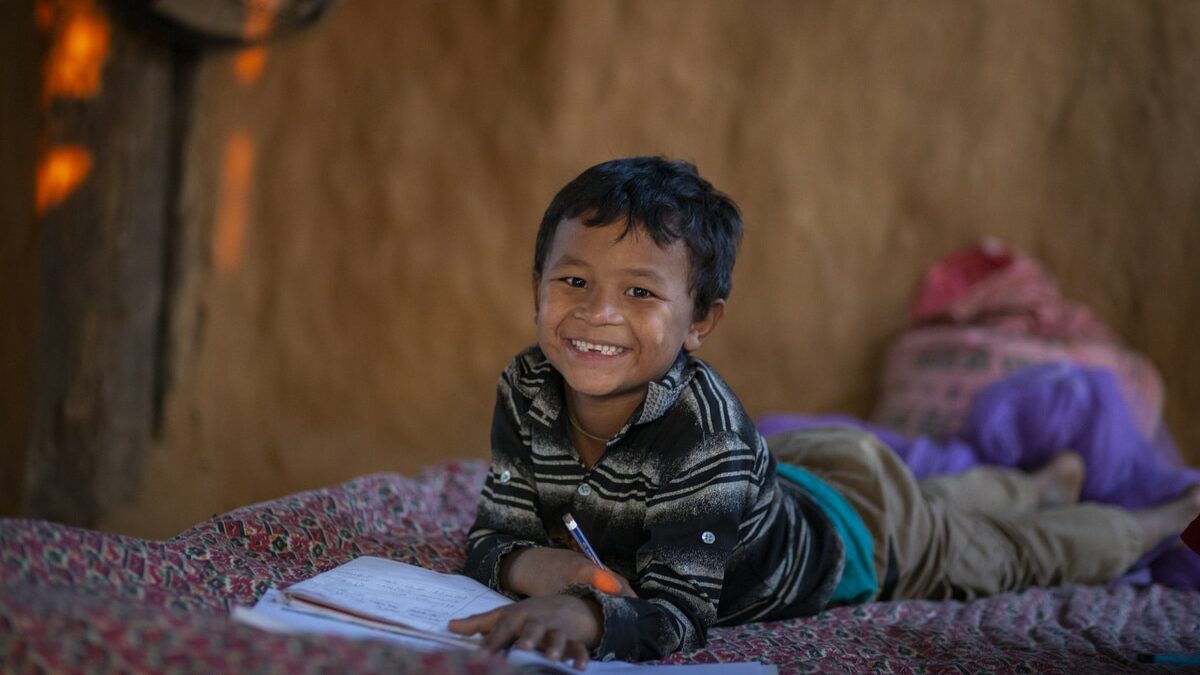
Every day a child is in an orphanage could be another day of hunger, of beatings, of longing for someone to love them.
Please donate to our Christmas appeal to help reunite children with their families and keep them safe from harm, and free from fear.
All Hope and Homes for Children’s work in Nepal is done through supporting our two local partners – The Himalayan Innovative Society (THIS) and Forget Me Not (FMN). The National Child Rights Council has acknowledged our collective expertise and efforts and now sees FMN and THIS as leading organisations on childcare reform in Nepal.
*Names changed to protect identity. | All photos by Kishor Sharma / Hope and Homes for Children
The post Donate to our Christmas Appeal to keep children #SafeFromHarm appeared first on Hope and Homes for Children.
]]>